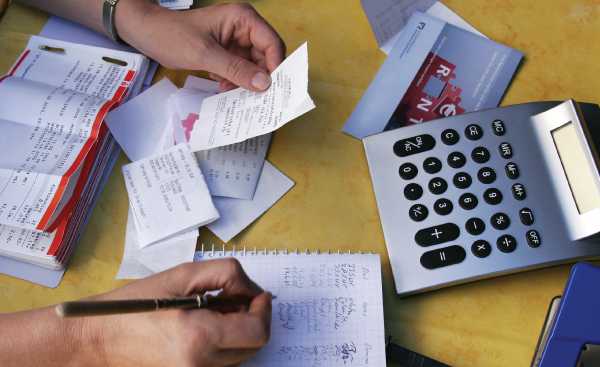Do you pay your BILLS ON TIME?
Paying your bills on time is an important aspect of taking charge of your financial life. It is not only good for your peace of mind, but also for financial

Paying your bills on time is an important aspect of taking charge of your financial life. It is not only good for your peace of mind, but also for financial planning and personal reputation. We tell you how to devise simple systems to stay current on your bills and protect your credit in the process.
If you have not been paying your bills on time, you need to understand why. For some people the problem is cash flow: a lost job, an emergency spending, over expenditure on budget, or depleted savings. However, many people don’t pay their bills on time simply because they forget, are too disorganised, or just ignore. They have no system in place for bill paying or don’t want to get involved in such a process. Paying your bills on time, every time, helps boost your financial planning, credit-worthiness, and determines the interest rate you pay on credit cards, loans, mortgage and so on, as well as helping you avoid penalties charged on late payment of bills.
To plan how to pay your bills on time, let’s start with the moment you get the bill, statement or notice to pay. Here we are not talking about cash payments such as in supermarkets, but bills that come in the mail, on your credit card or bank statement. If you don’t have a system in place to pay your bills on time, chances are you will see the invoice or statement and ignore it or keep it aside because it is not due and, therefore, not a priority.
The key to dealing with bills that come through the mail or in your bank or credit card statements is to ritualise the process – you open your mail, note the due date and set a time to pay that bill. These three simple steps will help you get organised.
Step One: Drop in folder or box
Rather than toss your bills in any place, have a single folder, box or any other container kept in a designated spot in your home or office for depositing the bills as soon as you get them. This should be kept at a place where your eyes will wander to as soon as you enter the room. You should be in the habit of emptying this folder or container ideally every day and not taking more than two days to do so. The trick is to ensure your box or folder are so small that they can take very few letters and so will spill over in a few days. Keeping the mail in this folder for longer than necessary only delays your decision of making payments. If you become an assured and speedy decision maker in this area, this skill will benefit every other part of your life.
Step Two: Eliminate
Open your mail every day and discard any advertising junk or notices that come in the same envelope so you are only holding the actual bill. The point here is to eliminate clutter and only deal with one piece of paper, which is easy to read and act on.
Step Three: Schedule
Decide how you will pay your bills each month – throughout the month as they come in, or all together on a particular day – and stick with your choice every month. Note the day of bills payment on your calendar or your phone notification. Put a sticker on that bill showing the day it falls due for payment and open a ‘bills-to-pay’ box or folder where you keep it. You can also stick a payment reminder on the fridge door using bright coloured stickers so you don’t miss it. Keep this folder or box in a place where it’s easy to find, such as kitchen counter or dining table.
Methods of paying bills
When it comes to paying bills, you have several choices. You can pay by cheque (still one of the best ways as you retain the cheque counterfoil with details of payment). Other more appealing options are to pay online, with a standing order with your bank, or one of the now very popular mobile money transfers such as M-pesa. Whichever method or methods you use, after you pay the bill, mark on it the payment date and payment method before you file it. It also helps to keep a ledger with all payment records.
If you are going to post your payment, take account of the number of days it takes the mail to get to destination. The best advice is to pay bills by mail at least seven days before their due date. Paying bills electronically or through your phone saves time and in the case of online payments, money. Whether you use your bank account or credit card to pay a bill online, ensure you take all security precautions to avoid hacking into your account or theft of your credit card details.
Giving bills priority
If you are not able to pay all your bills when they fall due for whatever reason, rationalise which should be paid first – utilities such as water and electricity to avoid disconnection; mortgages to avoid your car or house being repossessed or auctioned; goods on credit such as household furniture or you could find your house cleaned out; credit cards whose interest rates and penalties are killing; and your landlord lest you end up sleeping in the streets.




